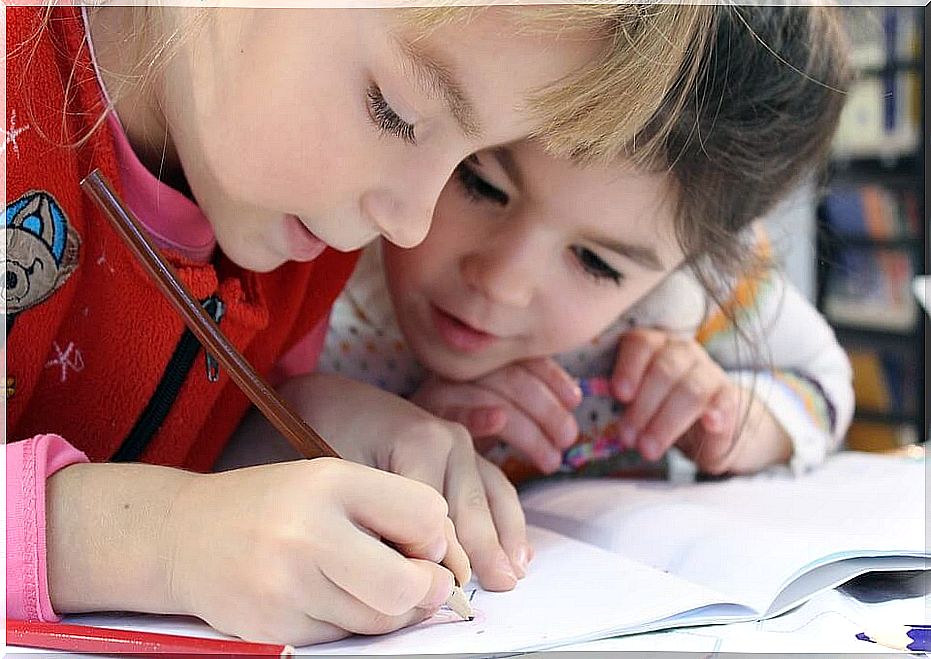Your Children’s Grades Will Not Determine Their Success

If you are a mother, your children’s grades are probably one of the issues that worries you the most. At the end of each school stage, comes the dreaded evaluation and, with it, the grades; a few simple numbers that seem to determine if a child is valid, intelligent, adequate and if he will be successful in the future.
However, this rating system is not only outdated, it can sometimes be harmful and even cruel to minors.
In our societies, for hundreds of years now, we have used to evaluate students using a numerical system. When the grades obtained are not what they expected, parents experience enormous concern, children feel inadequate, and the family system faces great friction and conflict.
However, children’s grades will not determine their future success. So it’s time we started to understand what these numbers really mean.

What are the ratings based on?
We believe that grades inform us of our children’s intelligence, their abilities, and their intellectual level. We think that they communicate to us the effort that the child has made, the attention they have given and the willingness they have had to learn.
From these numerical data we deduce if a minor is valid, adequate and successful. We take pride or shame, get angry, reward and punish based on this rating. But can we really get all that information from a single number? The answer to this question is clearly negative.
The little one is awarded a grade based on their performance on one or more written exams. Such tests not only tend to overlook all kinds of practical learning, but also primarily value memorization.
In other words, a child capable of retaining precise data in his memory and “vomiting” it on the exam will obtain high marks, despite not understanding what he is writing and forgetting it the next day.
The exams do not assess actual understanding of the subject or the meaningful learning that has taken place in it. They also do not take into account the effort of the child, his interest or his attitude. They only value a specific and specific result, ignoring the process.
Furthermore, they completely overlook the individual differences of minors. They all have to conform to the mold being judged, and if they don’t, they are literally labeled insufficient.
Your children’s grades will not determine their success
For all the above, it is important to be clear that your children’s grades will not determine their success. In the first place, because they are not a reliable measure of intelligence, capacity, or attitude.
A minor can be very capable, curious, skilled and competent and not see this reflected in his grades. A child may have a willingness to learn and great perseverance and still get poor grades.
But, in addition, the qualifications are not determinative because what they measure is not really relevant for success in adult life. In the real world, the ability to memorize is of little use, while other skills, such as social skills, creativity, or self-confidence are what is really valued.

Fitting into the mold during school years can even be a handicap when dealing with adult reality. On the other hand, it has been proven that less successful students in school have certain advantages when it comes to being famous entrepreneurs. And, while the school rewards those who adapt, life rewards those who take risks.
Focus on the process
Therefore, when it comes to your child’s education, try to focus on the process and not the results. Make sure to instill a curiosity to learn, critical thinking, perseverance, and responsibility.
Of course, encourage him to push himself and overcome school challenges, but keep in mind that grades are just a number, something that does not define your child as a person and will not determine his or her success.
Fortunately, more appropriate and diversified pedagogies and assessment methods are beginning to emerge . But, until then, let’s stop labeling our minors based on such decontextualized data.










